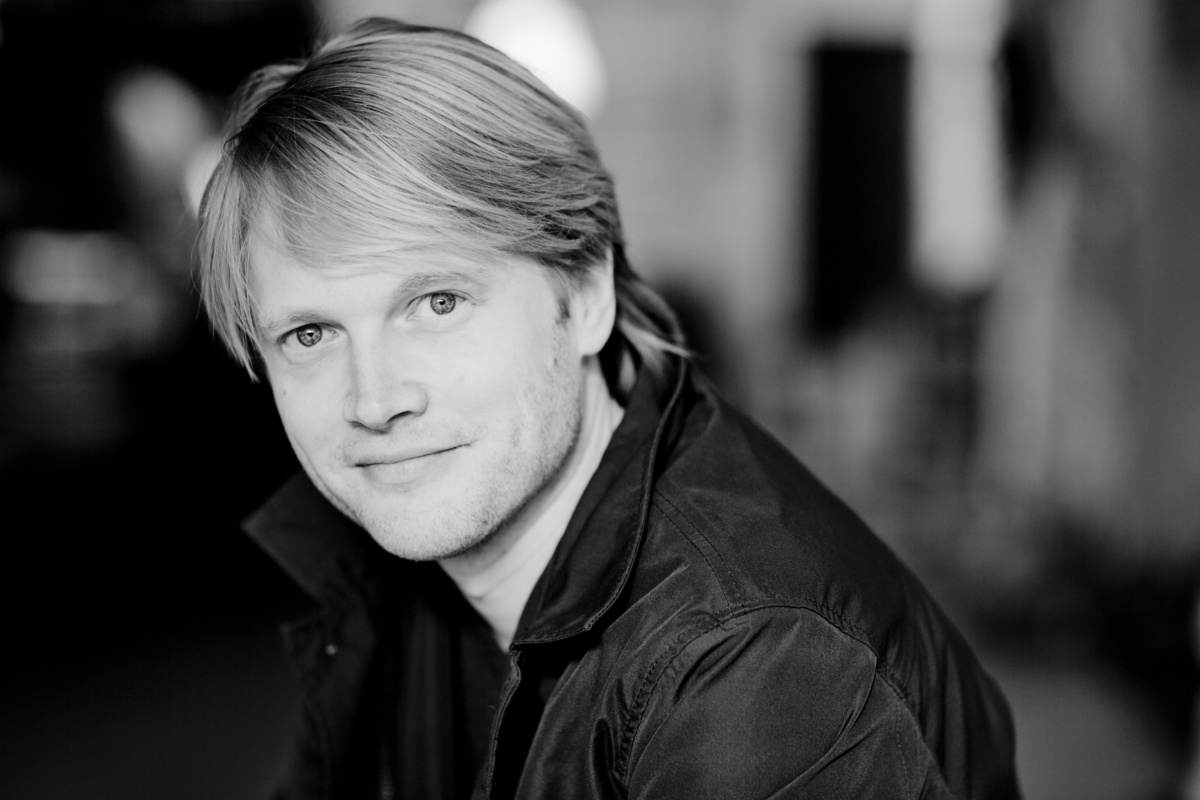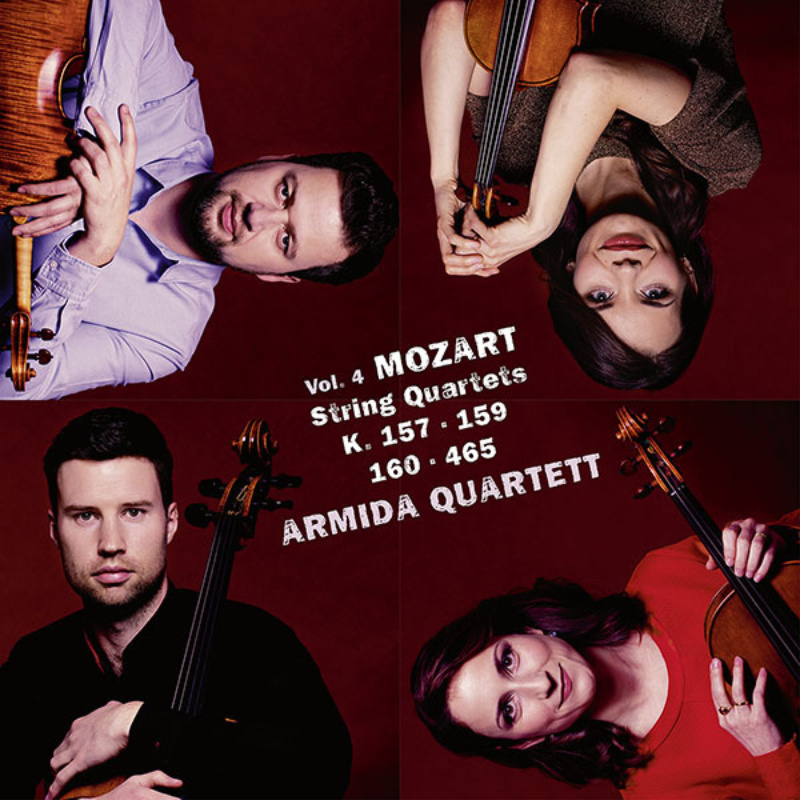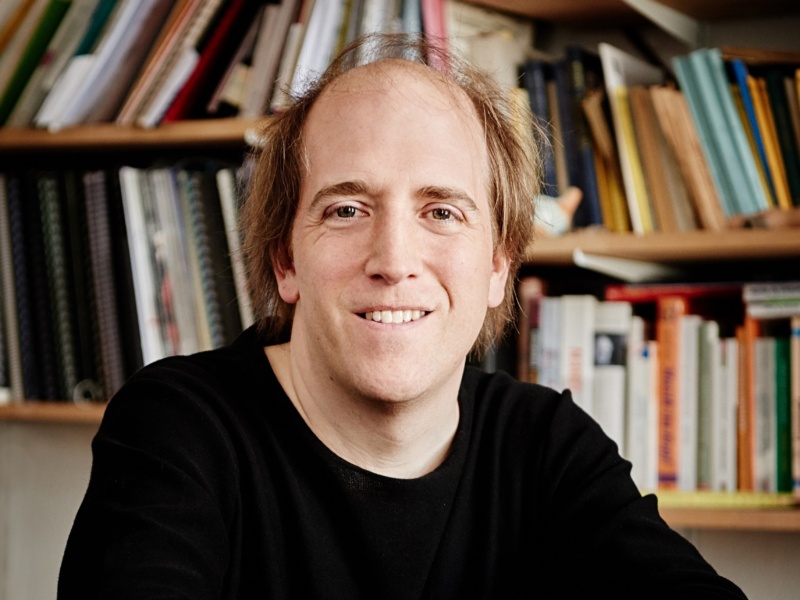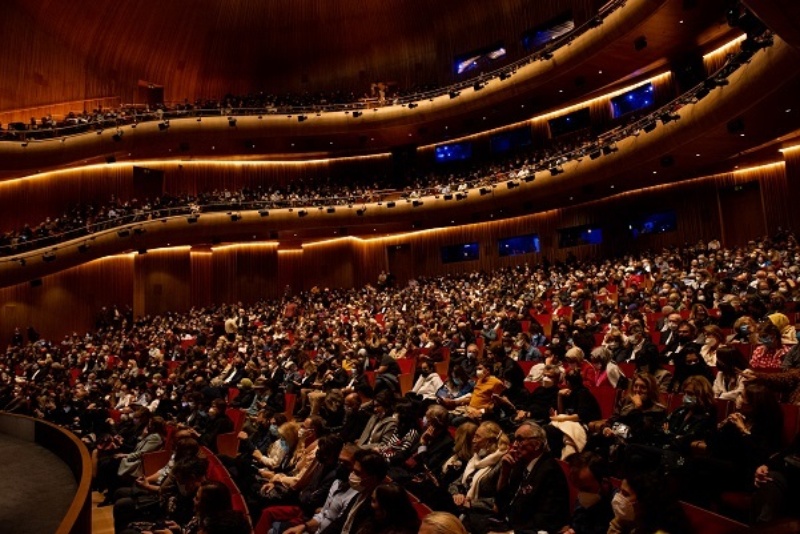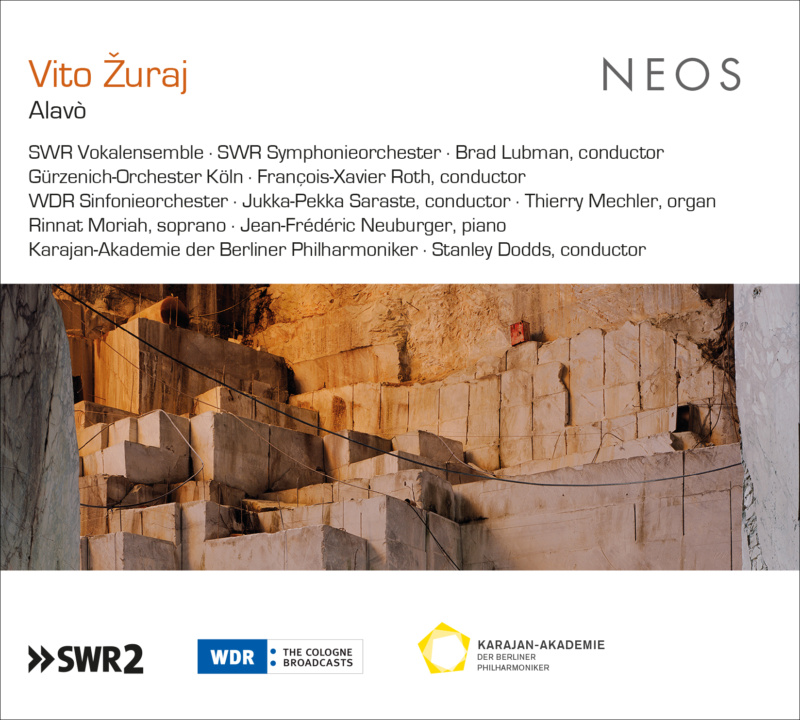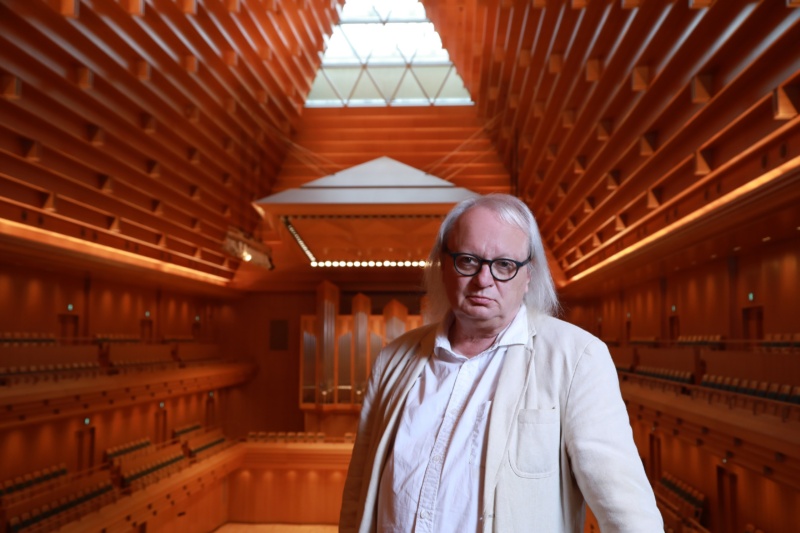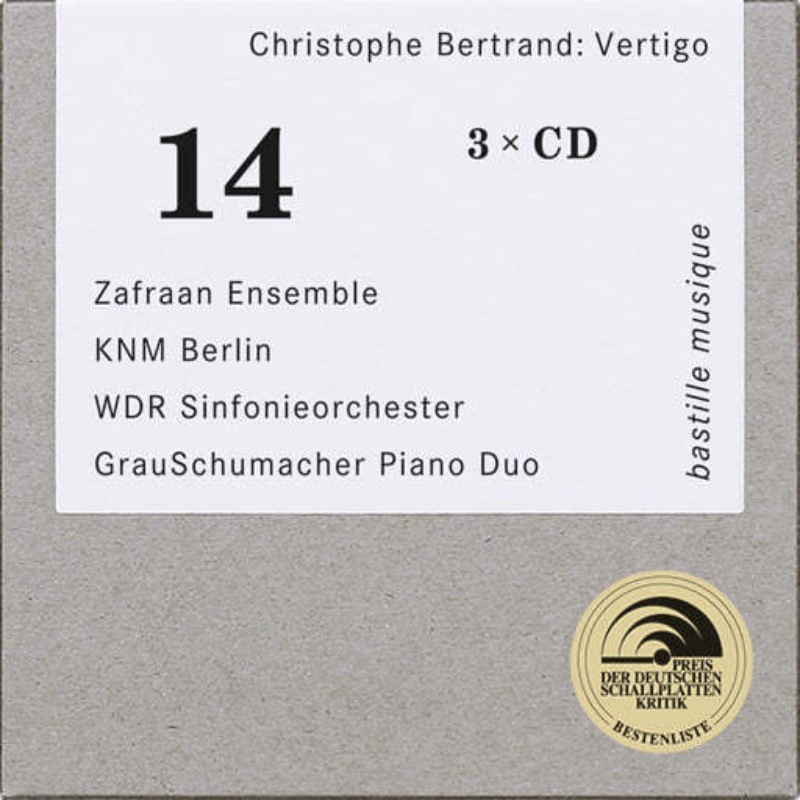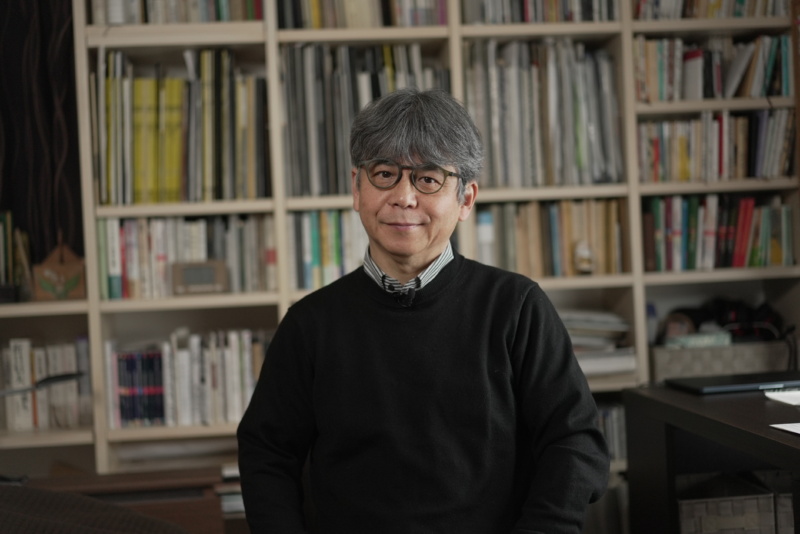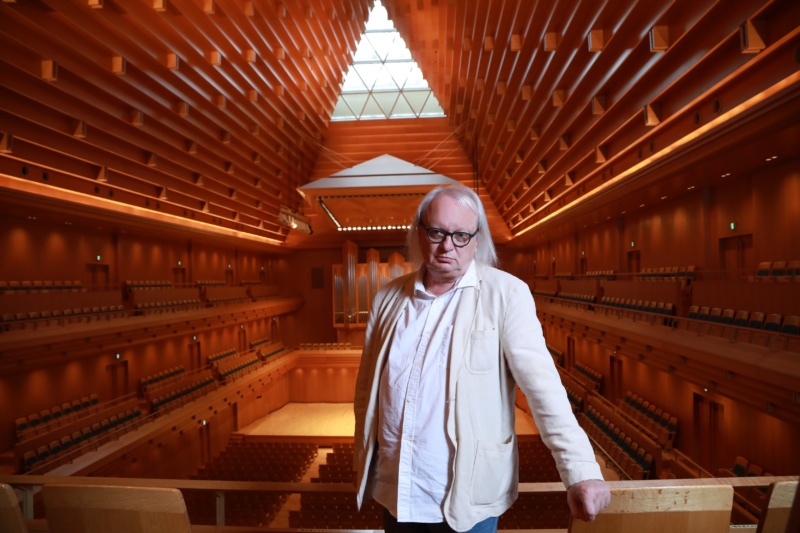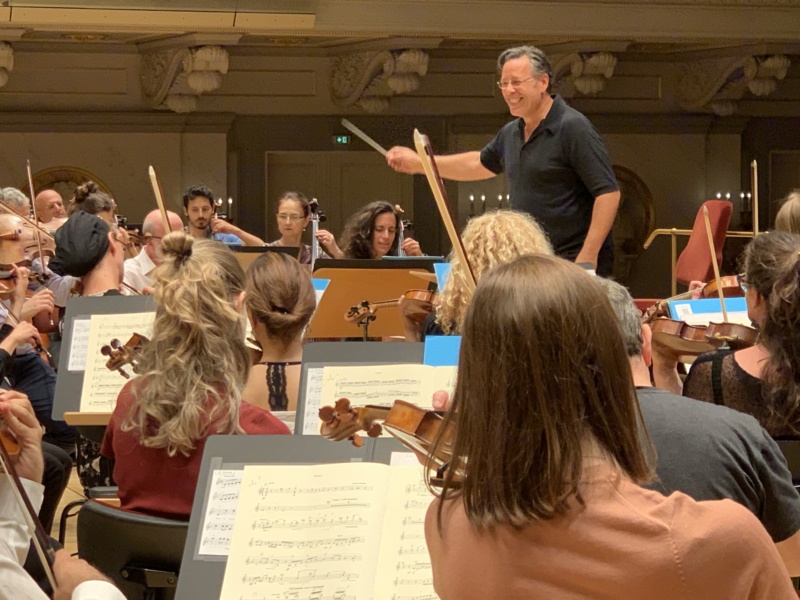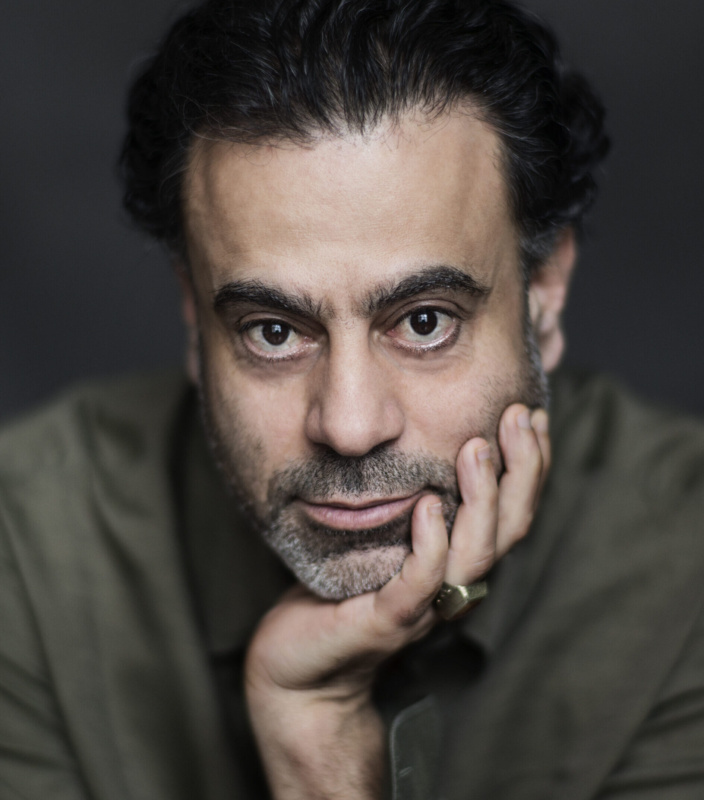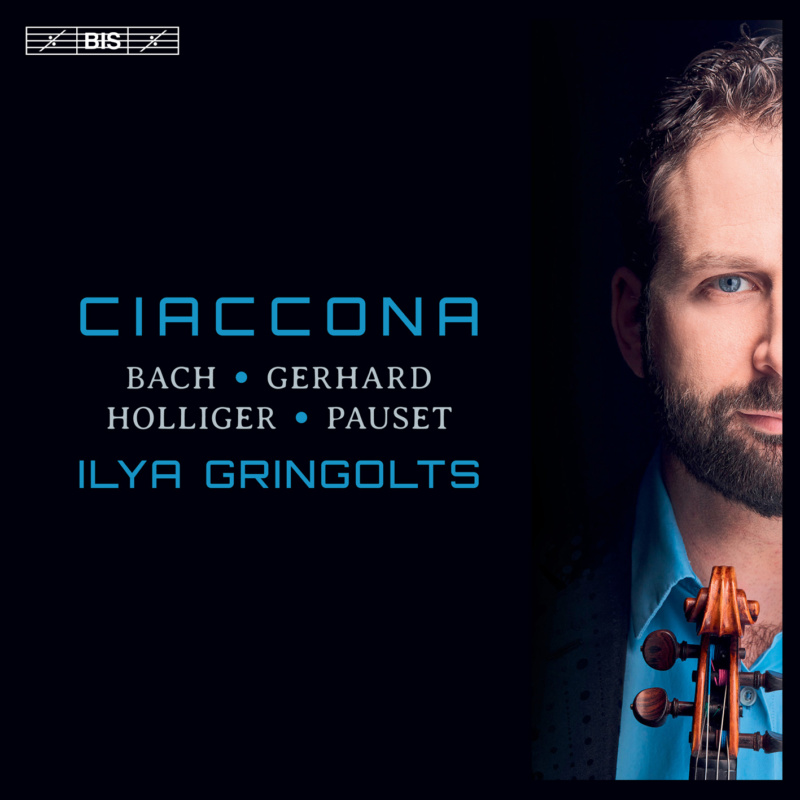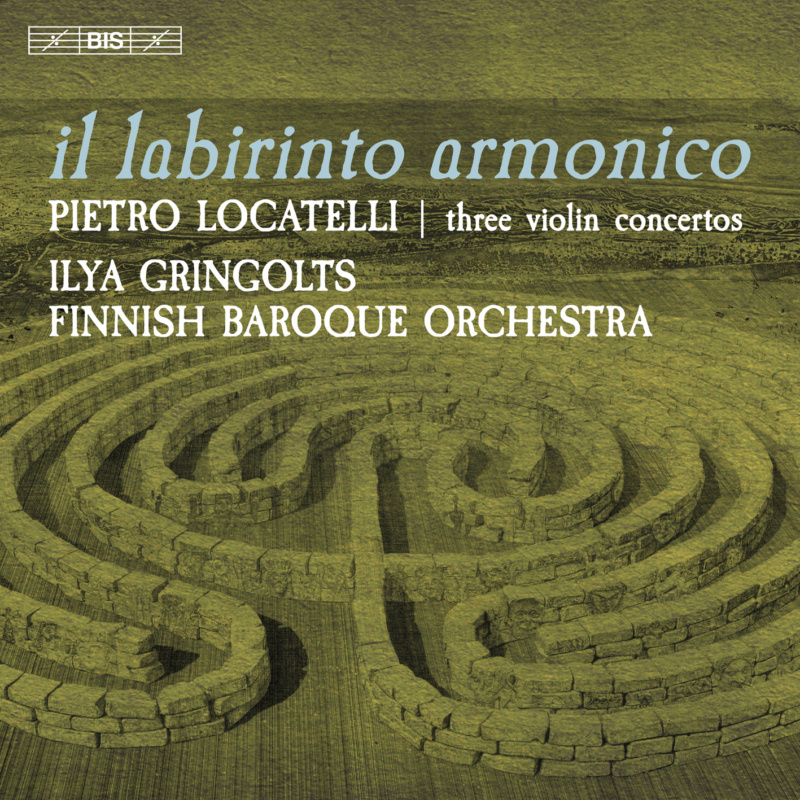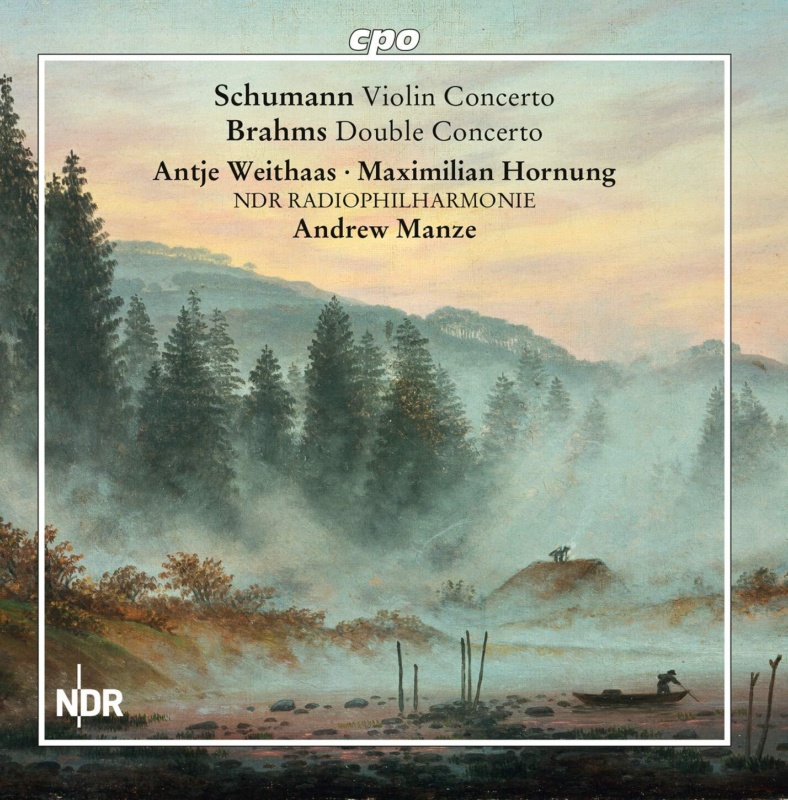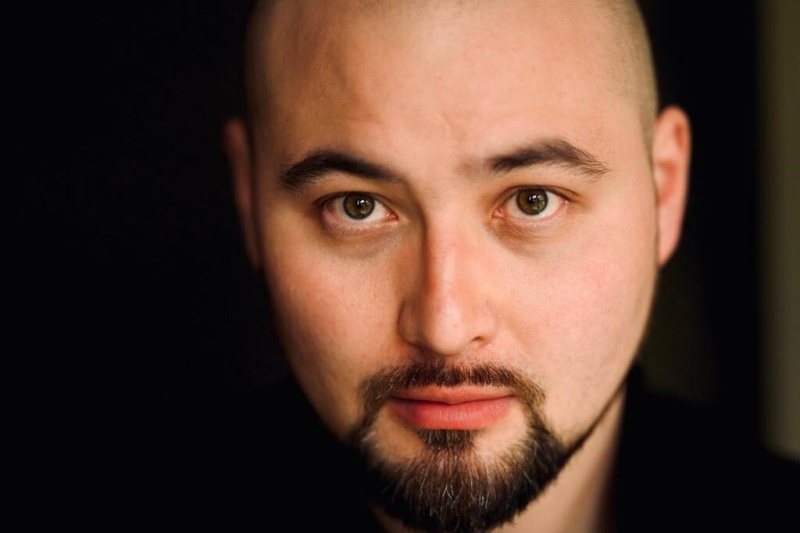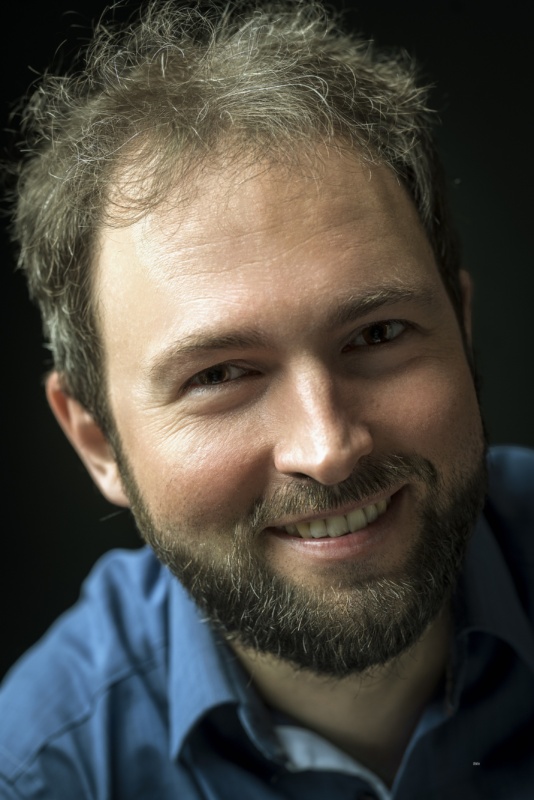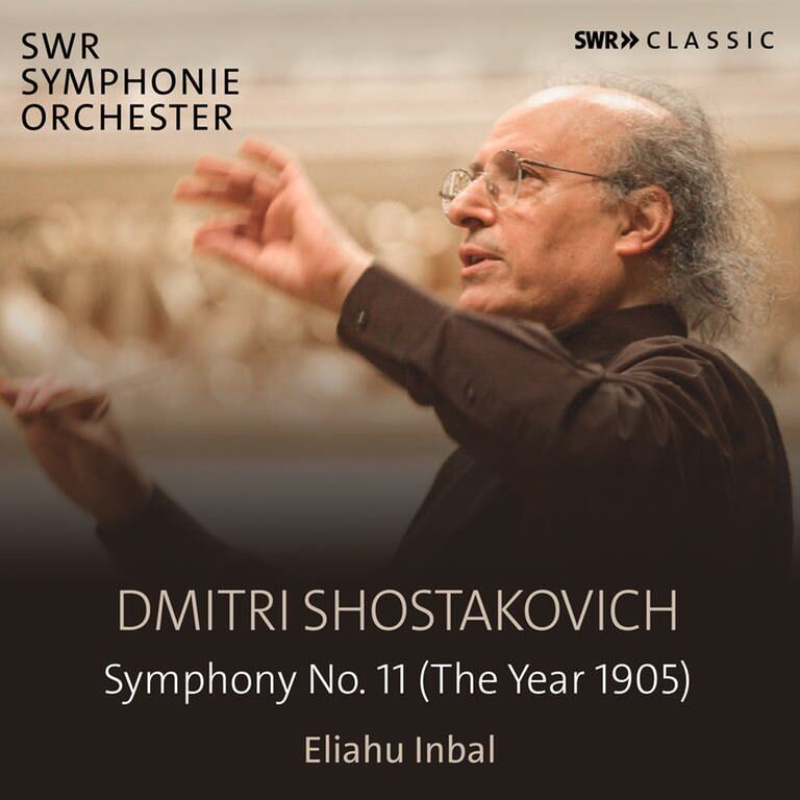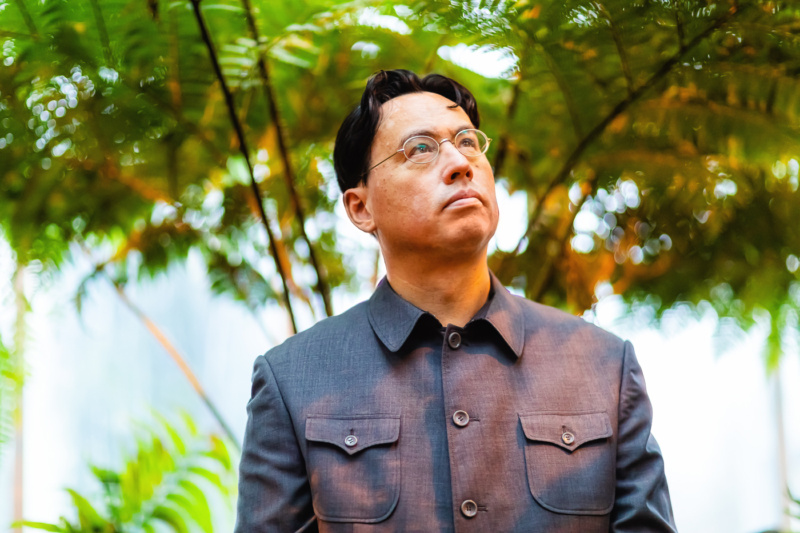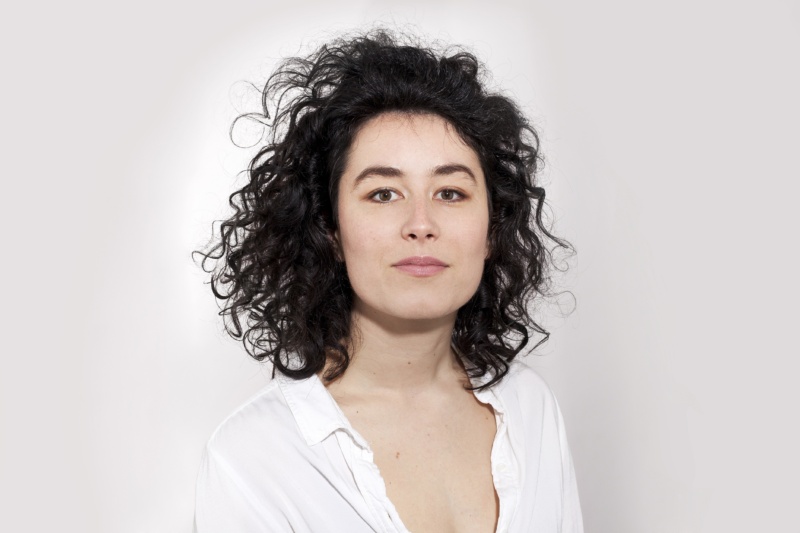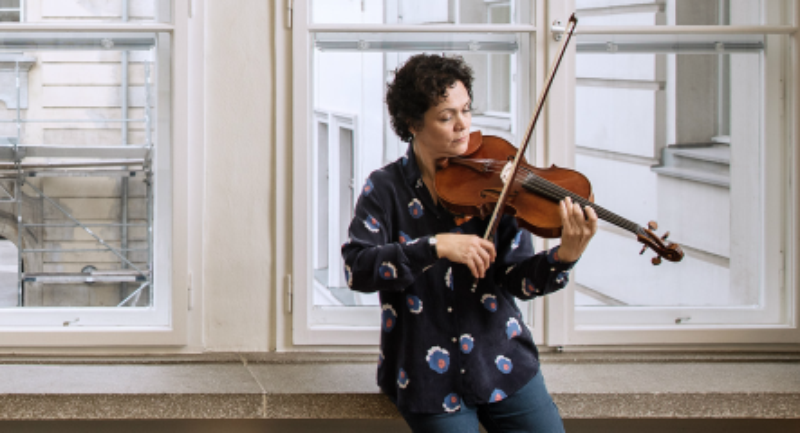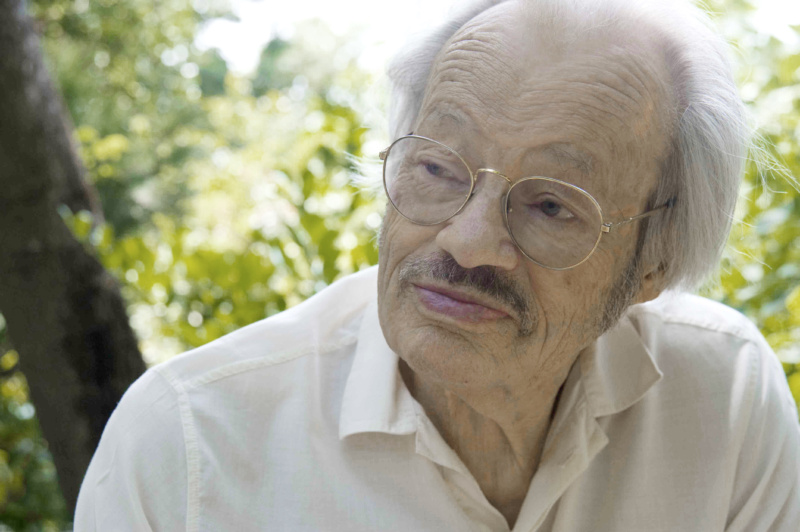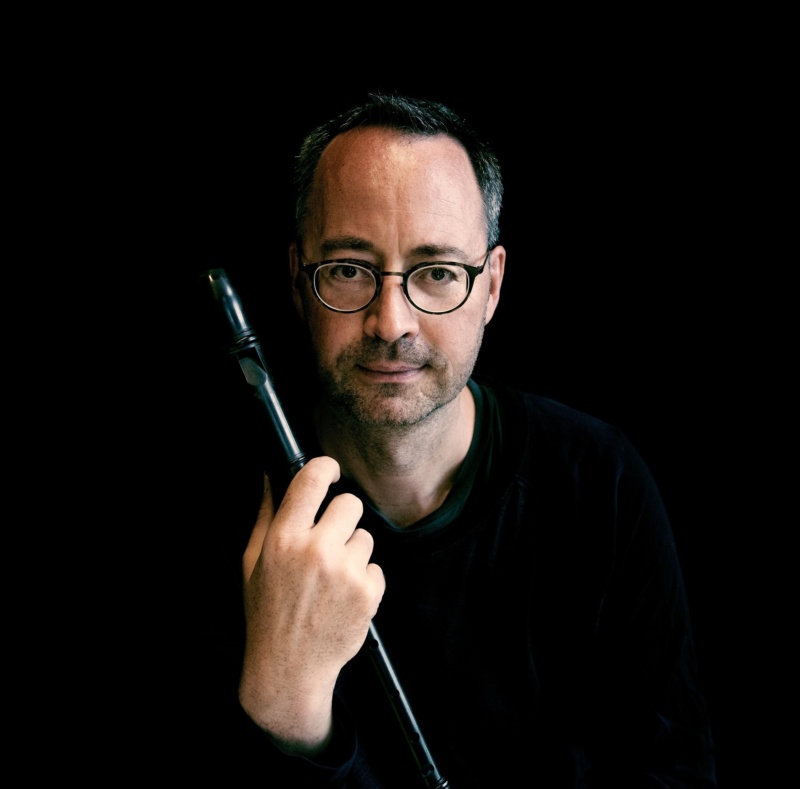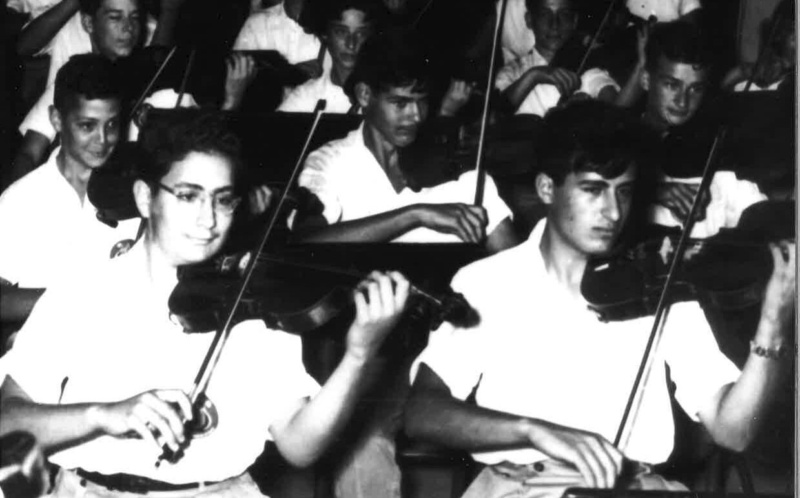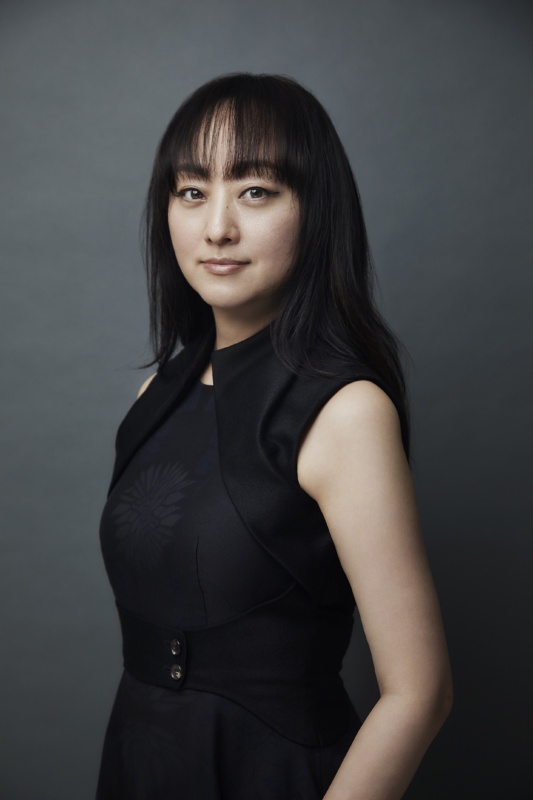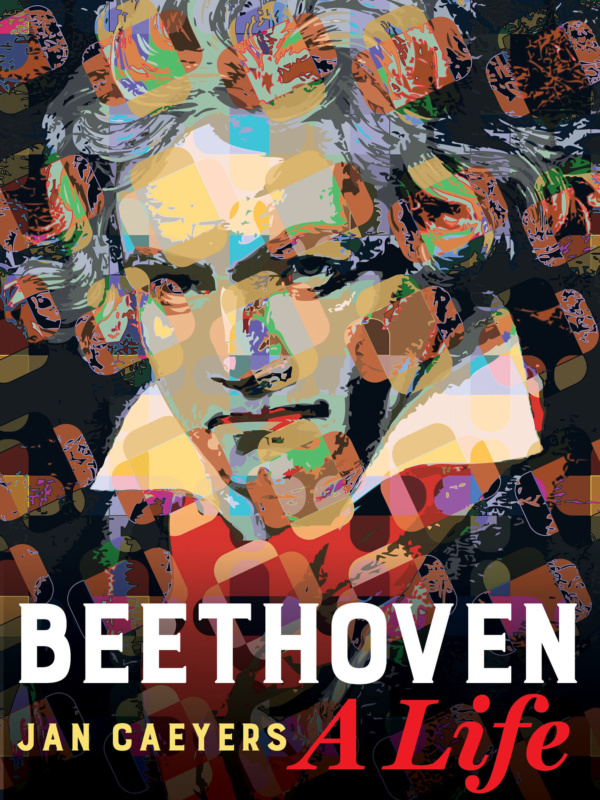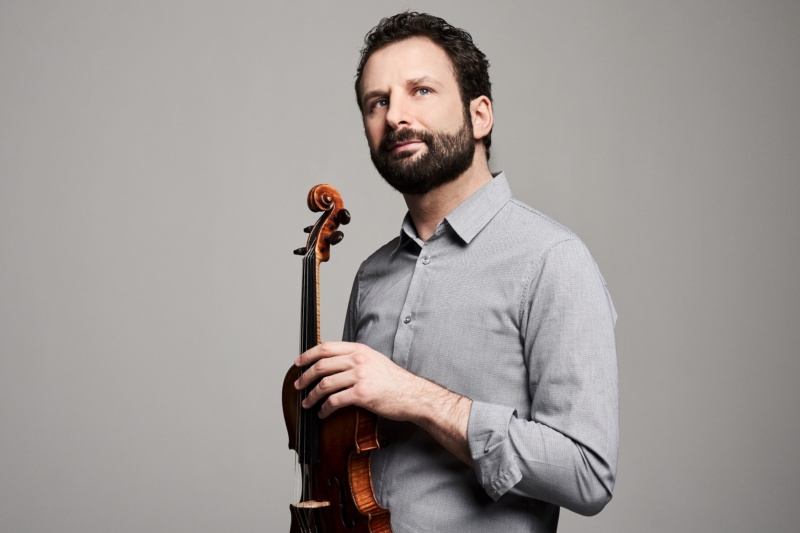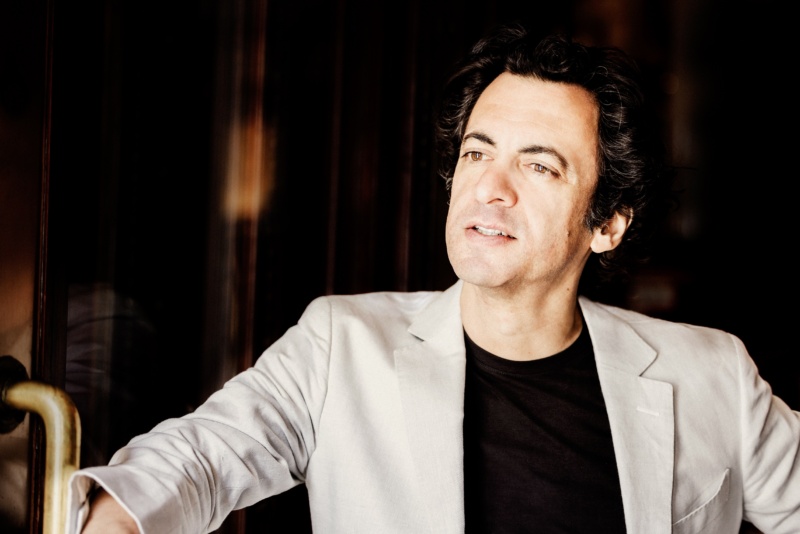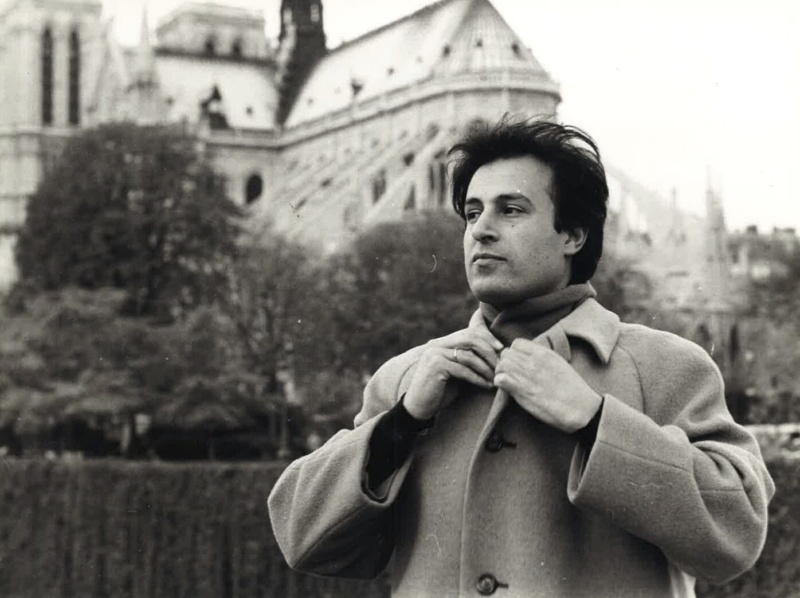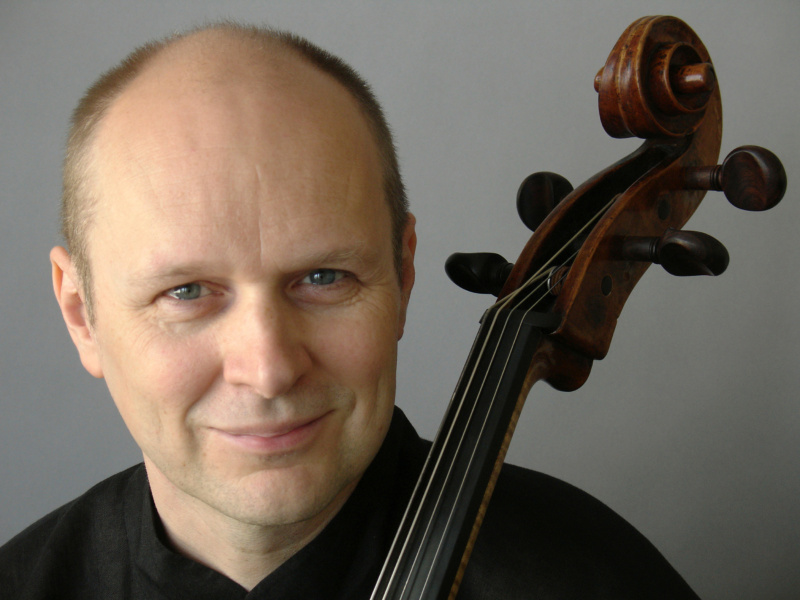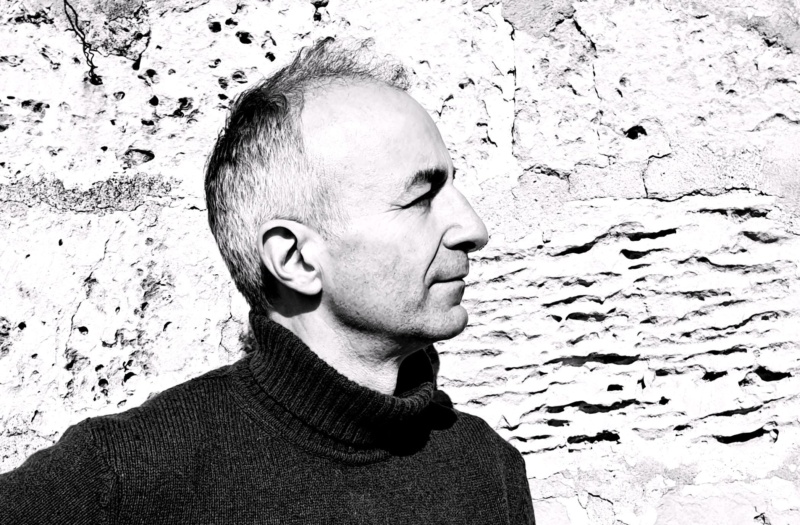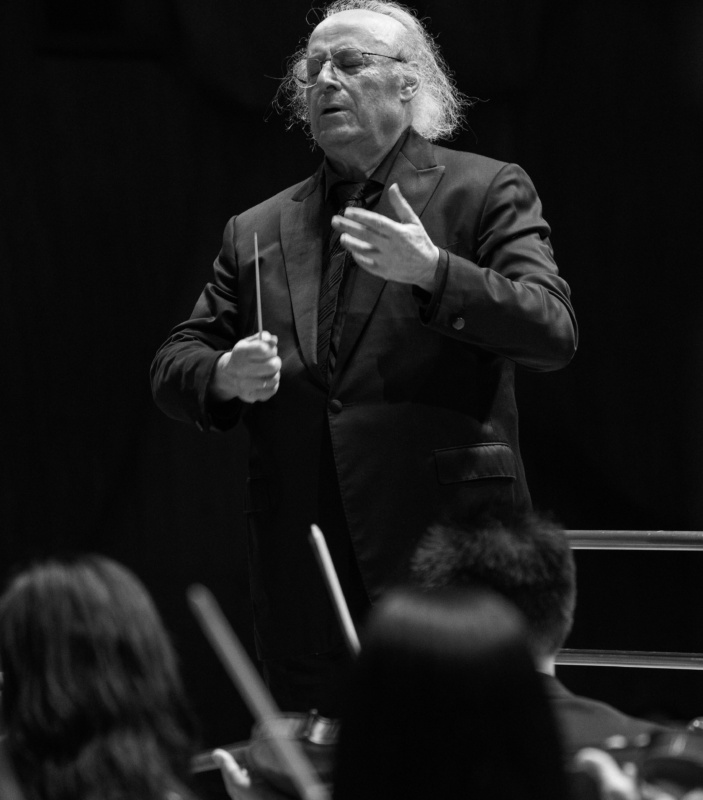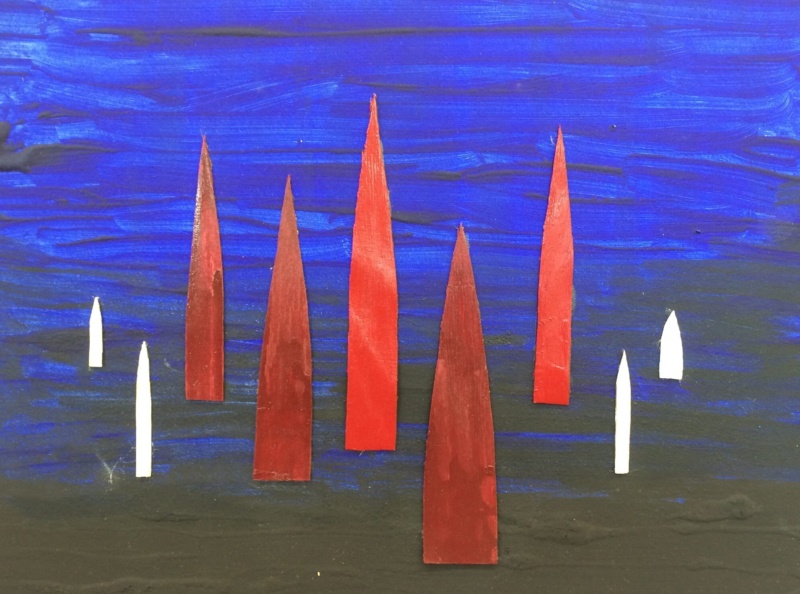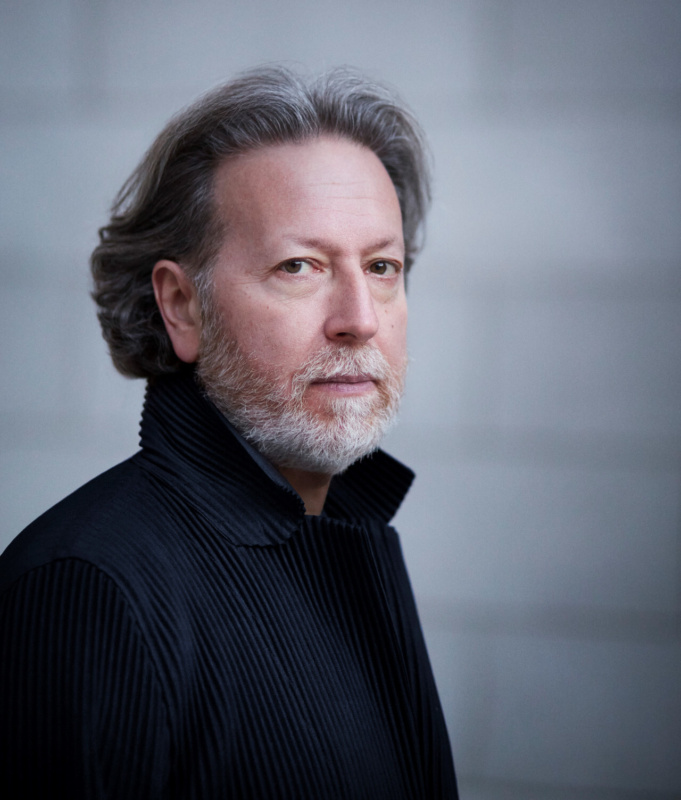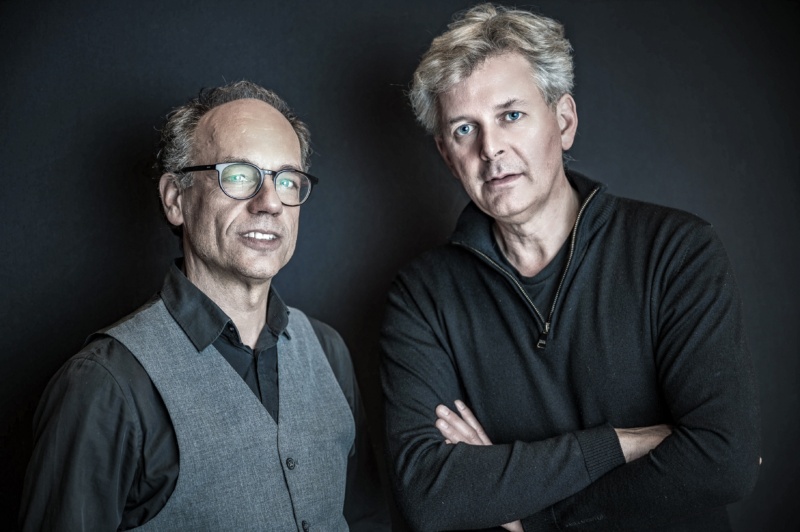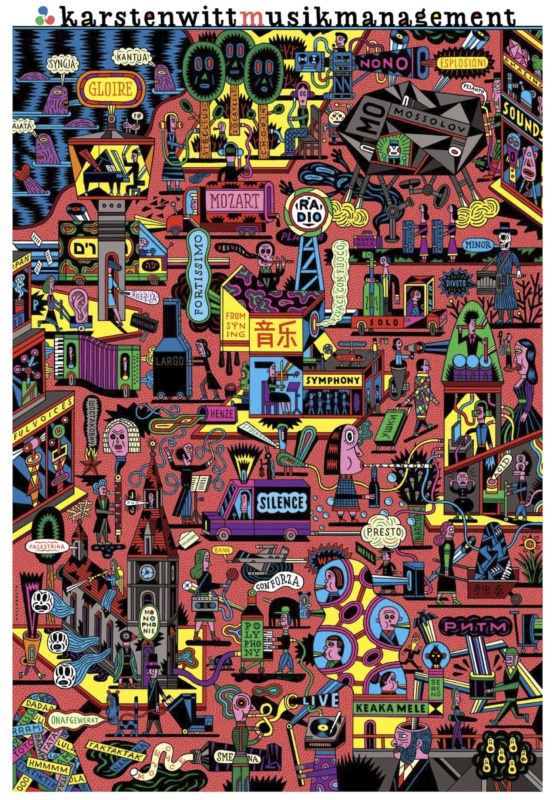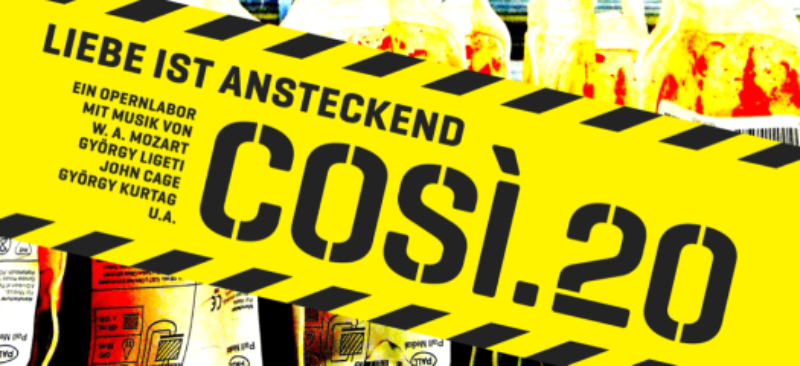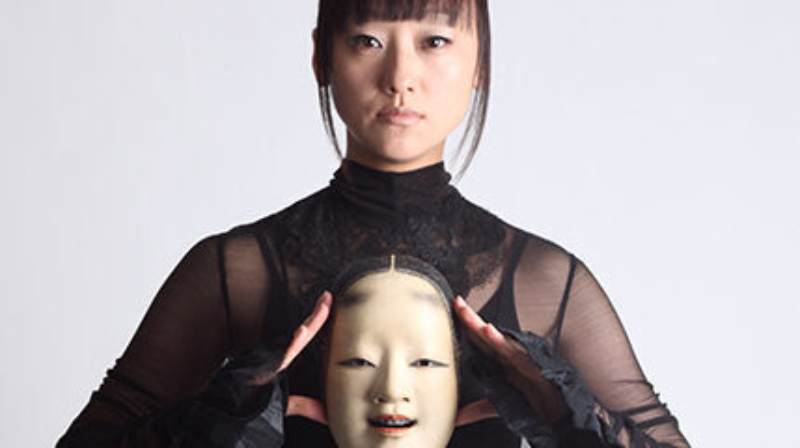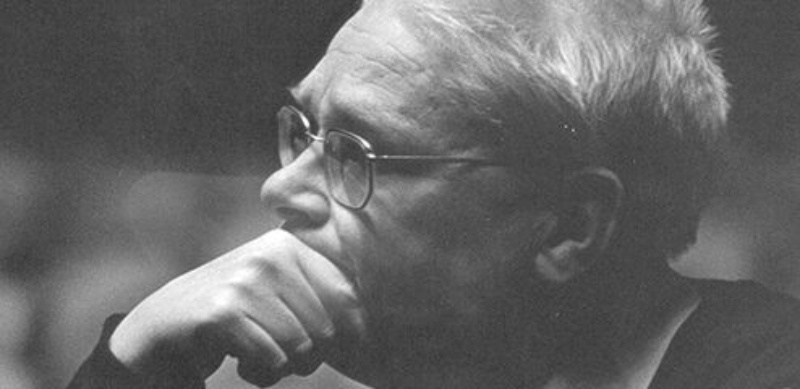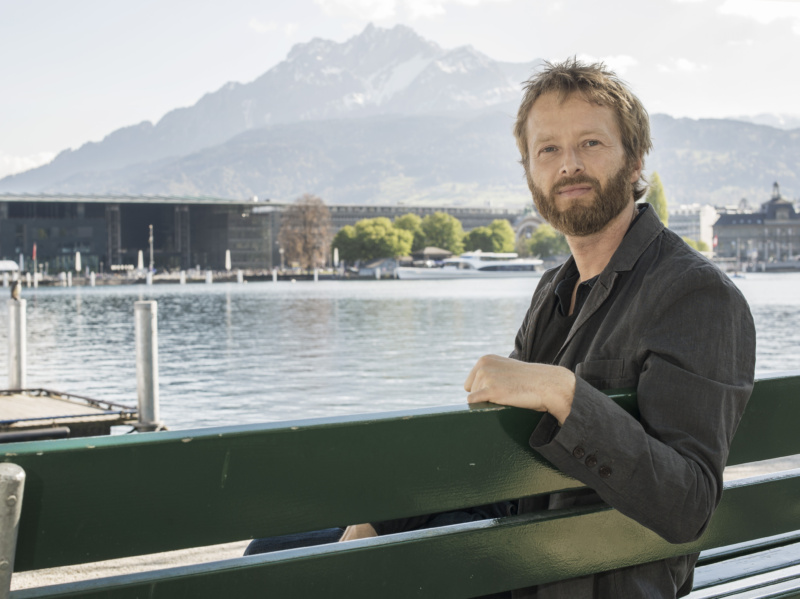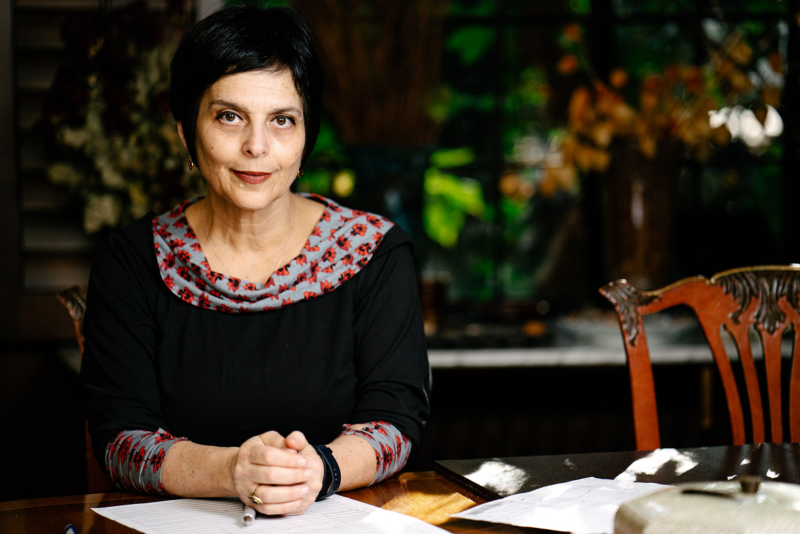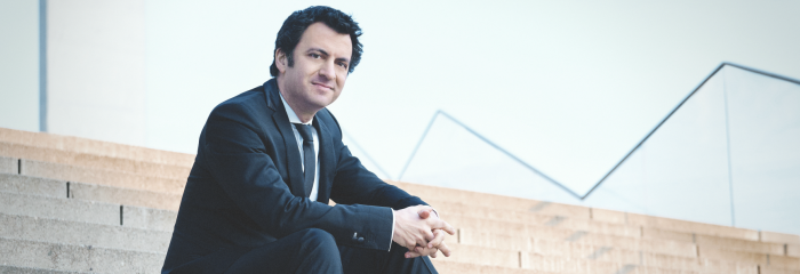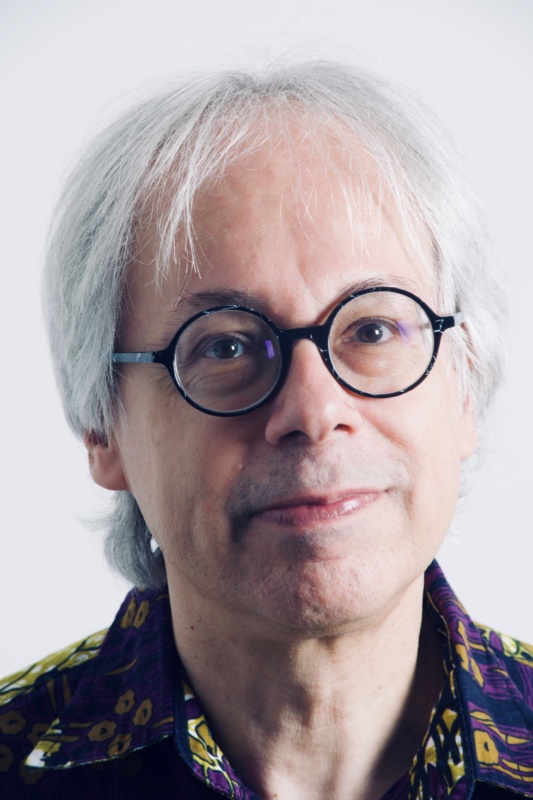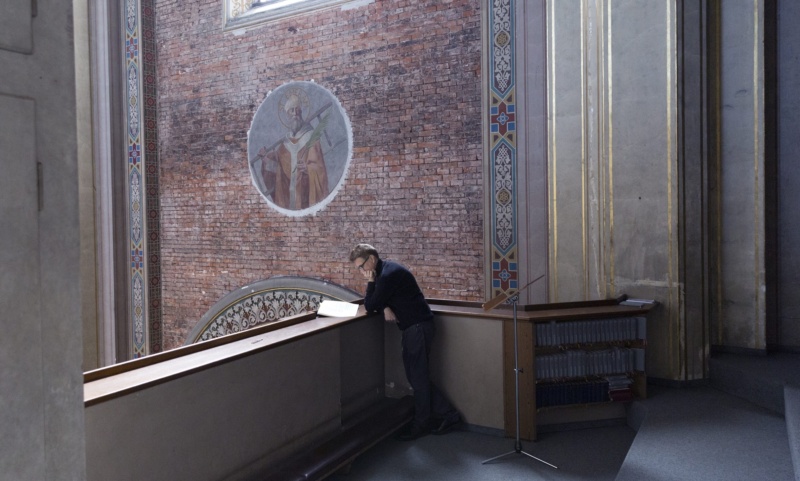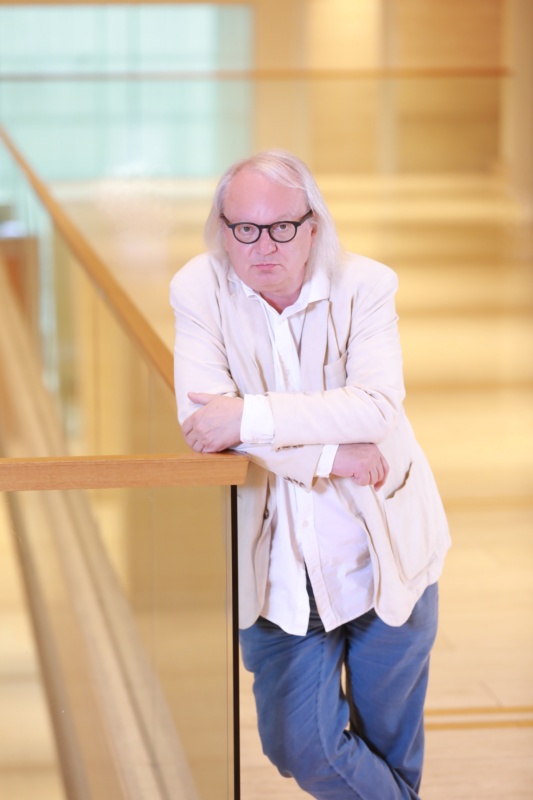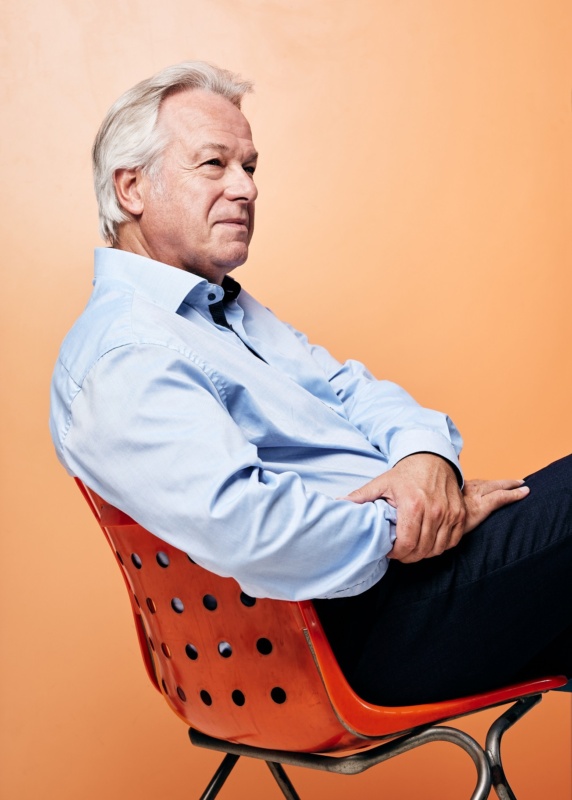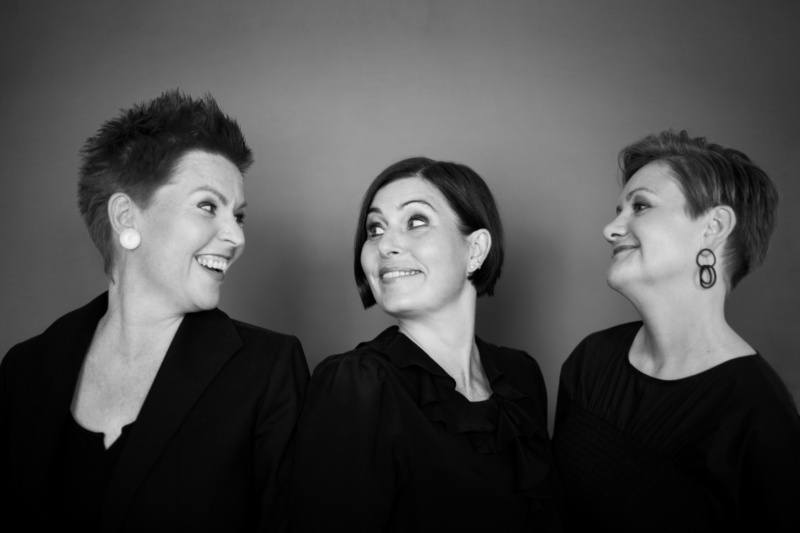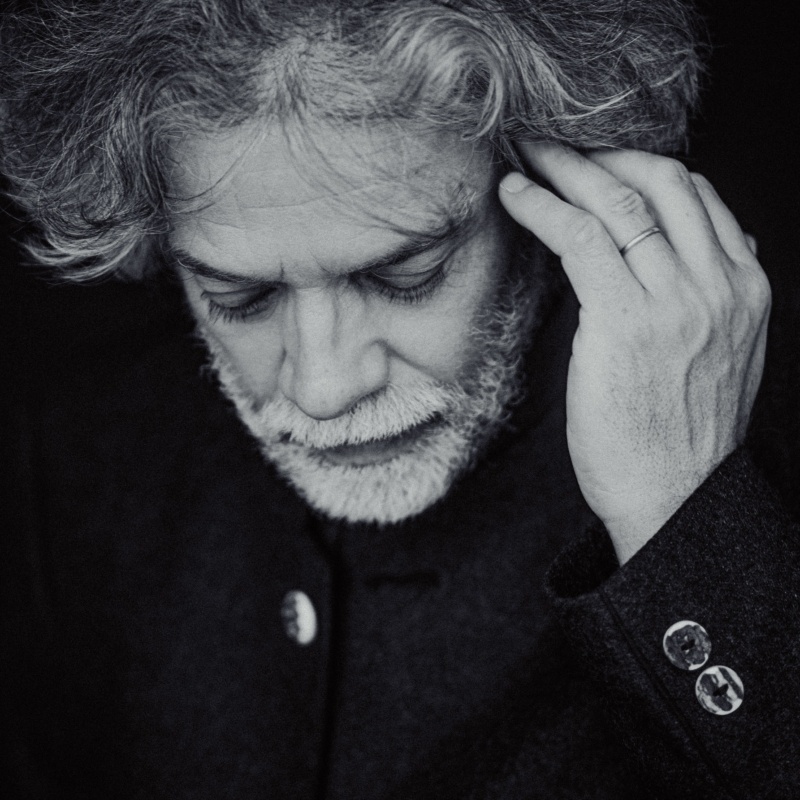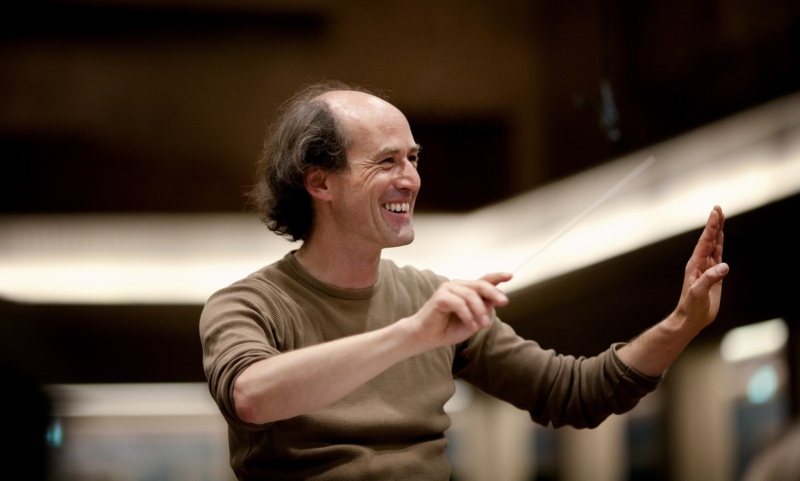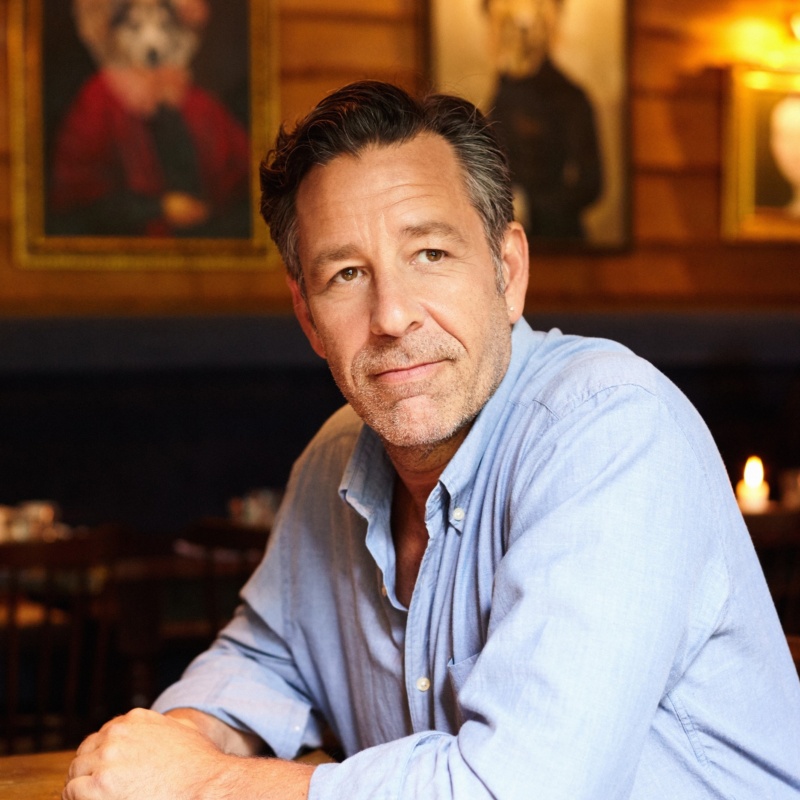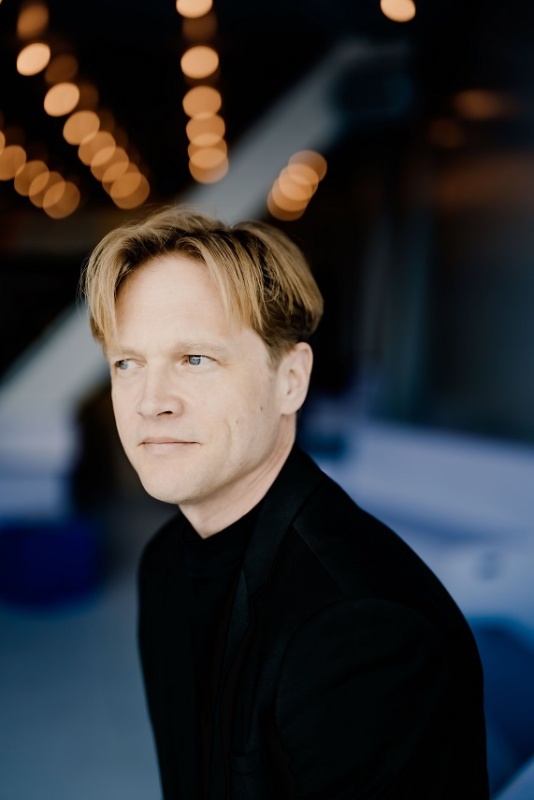KWMM: Bas, in preparation for this interview, I looked again at your 2018 essay for the Klangforum, in which you talk about flexibility and innovation in the world of orchestras and concert halls. Interestingly, today one reads this text through a different lens.
Bas Wiegers: Certainly. Flexibility was extremely important during the past year. It's an attitude that was necessary to survive. The ensembles are, of course, more flexible than opera houses or orchestras anyway, but overall 2020 was the year of flexibility.
If we look back, the year held some big disappointments for you, the first of which was the premiere of Salvatore Sciarrino's opera Il Canto s‘attrista – perche? in Klagenfurt, which got cancelled.
Indeed, and one day before the dress rehearsal. The piece was ready to go when the Austrian chancellor Sebastian Kurz announced the lockdown on March 13th. I then phoned the director and early that morning we decided to cancel. All the singers and I booked their flights straight away, and I was in Amsterdam that same evening. On the one hand that was difficult, but it was also a relief to know: If I get sick now or all hell breaks loose, at least I'll be home. Sciarrino himself spent two more weeks in Klagenfurt, he couldn’t go back to Italy. In the beginning, like many of us, I kind of enjoyed the enforced break. We are on the road all the time in this job and there is never enough time. Only later did it become more difficult for most of us.
This was the first of three major opera projects cancelled in 2020; your debuts in Stuttgart and at the Vlaamse Opera also didn’t take place.
In Stuttgart I would have conducted Death in Venice, that would of course have been a great debut. It took a long time before it was cancelled. I studied Britten for two more months. That was actually the hardest part. Taking a break is one thing, but preparing an opera while knowing it likely won’t take place runs entirely counter to one’s will.
Instead of the opera projects, after a large gap, you had room for new projects, often in the Netherlands. And then a real ‘Corona project’ came from Ensemble Resonanz, which implemented Georg Friedrich Haas ’composition Einklang freier Wesen as an interactive sound installation. For this you conducted so to speak blindly, in front of a camera instead of an ensemble.
At first, this idea was very strange for me: to conduct something without seeing the musicians, without a physical relationship to the sound. You're actually just a metronome, but you also have to show some music. The instruments were recorded individually, and we built something out of the recordings that resonates as an ensemble. The musicians handled it incredibly well, and the best for me was the post-production with the sound engineer. The project was a little crazy – but an exciting idea. And which piece, if not this one? It is about the impossibility of playing together, and – I only realized that later – about the limits of freedom, about a very important question. Georg basically composed solo pieces, but as soon as a solo piece becomes an ensemble piece, it's about relationships again. And to a certain extent, the whole Corona period has revolved around these issues. Personal freedom is always related to the people around us.
So the project really took up the situation actively.
Exactly. And also the frustrations of creating something together when you are not allowed to touch or see each other. That is what all orchestras say, of course, this ‘one-and-a-half-metre story’. When there is no physical contact, singing or playing together becomes very difficult.
There were also moments in the summer when there was a rediscovery of the concert ritual, when after the forced break everyone felt the power of live experiences.
Absolutely. At the Opéra national de Lorraine in Nancy, where I was at the beginning of July, I also remember a time when we were all a little scared. Well, the fear was never completely gone, unfortunately. But even if it was difficult – the fact that there was an audience at all and that we could play was really wonderful. I did Tchaikovsky and Albéniz with the string section in Nancy, and Gounod and Dvořák with the winds. That was actually only due to the conditions, i.e. how far apart everyone had to sit. When I think about how hard the artistic directors and organizers worked to make this possible ... Everywhere, until today! For example, two weeks ago I was in Frankfurt at the Ensemble Modern, there was Louwrens Langevoort from Cologne, and they had again presented the entire Acht Brücken Festival online. And also with the Eclat Festival, Christine Fischer – these people really persevered. Markus Hinterhäuser at the Salzburg Festival, too, last summer. I have tremendous respect for these people who also applied political pressure. That must have been an incredible amount of work. I think your agency also had three times more work and earned three times less money. OK – I was flexible the whole time, too, and put a lot of thought into programmes and organizational things, but I think the organizers and everyone who works around them have made an enormous effort to somehow shape the whole situation.
You conducted a lot of classical repertoire over the past year, starting in Nancy and then in the Netherlands with Het Residentie Orkest.
The whole period was originally planned for KOMA at the Vlaamse Opera, so I was free for a project with the Residentie Orkest. There I conducted Beethoven's 2nd Symphony and the Mozart Adagio. Everyone played Beethoven, it was still Beethoven year. Poor Beethoven.
He can handle it.
Then there was an extra project at the Klangforum, and I stepped in at the Ensemble Modern – all last minute. The only thing during this time that went as planned was my performance with Asko/Schönberg in the Muziekgebouw Amsterdam.
Originally planned as the start of your residency there.
Yes, and unfortunately the only part of the residency that could take place. Also in a completely different form. I was involved in the planning of the programme and thought a lot about what would make sense there with a smaller cast.
You worked also with the WDR Symphony Orchestra, where a lot of the programme was changed again.
That was my last concert with an audience on October 10th, except for a few concerts in November in front of 30 people and a project at the Philharmonie Zuidnederland. But it was only a streamed concert, because the concert halls in the Netherlands were already closed.
It must have been a big effort to learn repertoire so quickly for these spontaneous projects and all the programme changes.
Yes and no. We did Stravinsky's Apollon musagète with the Munich Chamber Orchestra, which I had conducted twice before, and I also know Bach's 3rd Brandenburg Concerto well. Purcell, on the other hand, I had to study a little more, for example, but of course as a violinist I used to play this baroque repertoire a lot. It was similar with the Philharmonie Zuidnederland. Mozart's Horn Concerto is of course known, but I had never conducted it before, and I have done the Unanswered Question a hundred times. I had never done the Haydn Symphony before, but you learn that quickly. Of course, it's nicer when you have the right amount of time. But I have the impression that the orchestras and ensembles enjoyed it too, this feeling of: We are open, and we also know that the conductor may not know the piece by heart at the first rehearsal. You're somehow more relaxed because it's so great that you can work at all.
But on the other hand you have to drop some quality standards, right? At a certain point there was the problem that the orchestras hadn't played for a long time, that maybe some musicians weren't that fit on the instrument ...
Maybe a little, but I didn't really perceive that people had difficulties individually. The hardest part was that they were sitting so unusually far apart. This was less of a problem with the ensembles, because they are individual players who always listen incredibly well, and if there is an extra 30 cm in between, it is hardly noticeable. But with an orchestra… I played Beethoven's 2nd Symphony with eight first violins, and the last ones sat where the tenth desk would be in Mahler's 8th. It is then just difficult for them to hear whether they are together. The wind section at the Residentie Orkest, for example, always plays beautifully and well and lovingly together, but they also had difficulties. And then you know, it is really not a question of willingness, it just doesn't work any better. You have to live with these restrictions. And maybe that will lead to a new quality if we sit together again normally in a few months, maybe we then listen even better than before.
We are approaching an even more difficult time in the chronology. You were again in Nancy and also conducted Beethoven for a recording.
It was cancelled the day before because of someone in the orchestra who tested positive. We made up for it and played Beethoven in December. Then came the concerts with Phion, for which we completely rebuilt the programme. I made contact there early in the summer and asked if I should suggest something, because I really wanted the two soloists to be there. I then scaled it down and took my own arrangement for the Albéniz piece with me. We played it twice in a row on five dates, each in front of 30 people in the audience. Rebuilding this whole programme was actually great too. And the orchestra was happy, the musicians were really grateful.
There should have been New Year's concerts there, which were postponed until next year.
Yes, there were no more concerts at all in the Netherlands. But I still went to Stuttgart for the Eclat Festival. We actually had a huge thing in mind, with the SWR Vokalensemble. We also wanted to go to Amsterdam as part of my residency at the Muziekgebouw. We managed to make three recordings that were streamed by the Eclat Festival. There were two world premieres by Enno Poppe and Wolfgang Motz, which a lot of people watched. The SWR produced that incredibly well, as was the case with the entire online presence of the Eclat Festival. When you film a stream so well, it really makes sense. Then it even brings something extra, because I had a video conference with the other artists afterwards. Maybe some of these things will remain in the future; we really learned something there.
You were also invited at the Ultraschall Festival Berlin after the turn of the year. Your debut with the Berlin Radio Symphony Orchestra should have taken place there.
The radio orchestras were no longer allowed to play, the debut has been postponed until next season. The festival director, Rainer Pöllmann, asked me: Are you coming to Berlin anyway? I had nothing to do in Stuttgart, I couldn't go back to Amsterdam, and I said yes. We planned something with Ensemble Mosaik three days in advance. I learned the repertoire on the train from Stuttgart to Berlin. Testing was already quite common, we all felt relatively free during rehearsals and gave an exciting live radio concert.
You were then in Nancy for Britten's Turn of the Screw, and a film was made there.
That was also complicated at the beginning, because a week before the rehearsal we had a huge change in the line-up due to travel difficulties. And from the beginning it wasn't quite clear whether we could make a film or just a normal stream or maybe play in front of an audience, there was still this hope. That was particularly difficult for the stage director Eva Maria Höckmayr: She had to work with two or three options. In the end, something really great came out. The singers cast was incredibly good, very friendly with each other. For the last two weeks – the opera director had organized that extremely well – we were tested every day and were able to go on stage without a mask. And because it went so well, we ended up being able to record two days of video footage.
Then you conducted Ensemble Modern recently.
A much larger programme was planned there too, with Clara Iannotta and Dai Fujikura. But we could only do two bigger pieces by Sciarrino and Romitelli. We recorded them separately and streamed them as part of Acht Brücken.
Sciarrino, Quaderno di Strada
Romitelli, Professor Bad Trip
It was a great collaboration. Here at the Klangforum, too, work is actually pretty normal; we are now so far that we are tested every other day. The halls open and we have an audience with us again, about half the normal occupation. That's a lot more than I've seen since November. The only thing I still find difficult is the responsibility not to get sick. If you feel a little sick, you should stay at home. However, I never felt good two days before a premiere. But that is also getting easier now. There are now only two projects in Munich and at the Philharmonie Zuidnederland before the summer break, and then it won't start again for me until August. I hope that I and a large number of people in general will be vaccinated by then and that traveling will become easier again.
I am curious to see what conclusions you will draw when you can lean back at some point. What is changing? What did you learn? How do musicians see themselves differently after this constant streaming?
I find it difficult now, we don't have the overview yet. All this online stuff presents incredible limitations, too. The physicality that music requires is tremendously lacking. This concentration that you build up when there is an audience and that the audience can feel: we will always need it. That's what music means to us. I don't think the fact that they were filmed with cameras all the time made that much difference to the musicians. I hardly actually watch the concerts myself. I just hope that people will come back. That the musicians and the audience will trust again that going to concerts is safe. Lately I found it difficult that on the one hand many artists say in the media that we need the halls and theatres to be opened up, but on the other hand the audience doesn't have a voice of their own. I hope that the audience will regain their voice and that people will say, enough is enough, I want to go back to hearing live concerts.
The year of flexibility
Just before Bas Wiegers conducted his first concerts in front of a live audience in May, he sat down for an interview to reflect on the preceding Corona year.
